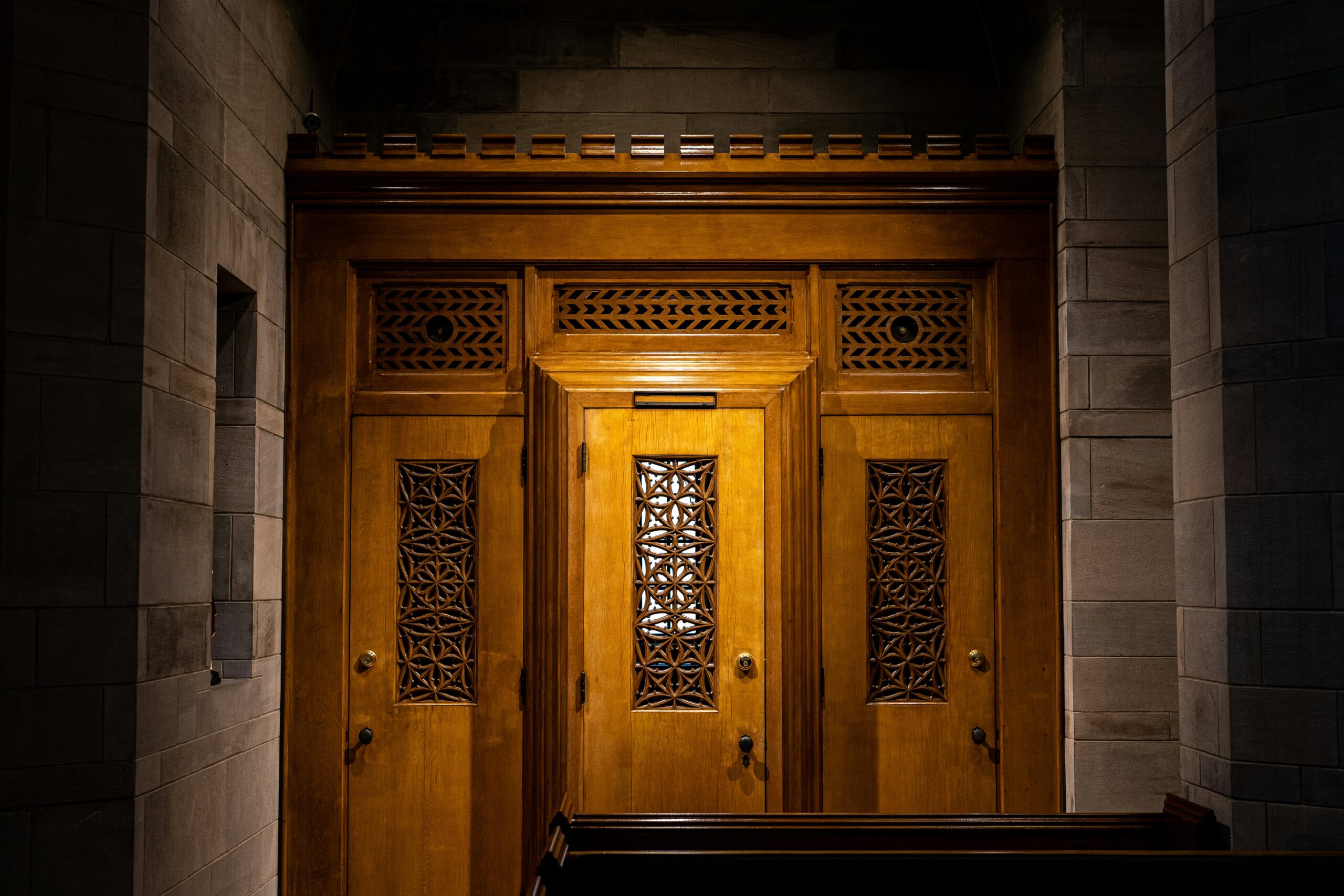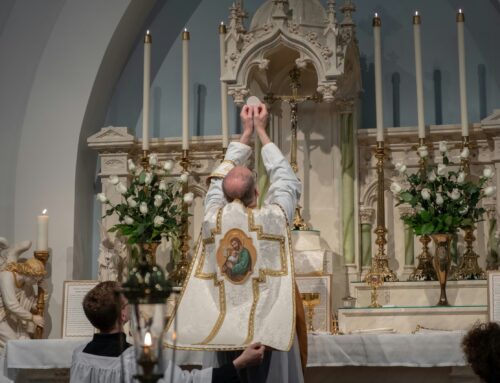The Sacrament of Reconciliation, also known as Confession or Penance, is one of the most important and profound gifts given to Catholics. Through this sacrament, we experience the boundless mercy and love of God. It is much more than simply acknowledging our sins—it’s about truly seeking and receiving God’s forgiveness, restoring our relationship with Him, and being reconciled with the Church. Reconciliation invites us to reflect on our actions, make amends, and receive grace that strengthens us to live more in alignment with Christ’s teachings.
Many people may feel intimidated by the idea of confessing their sins to a priest, yet Reconciliation is deeply comforting, offering a path toward spiritual healing, peace, and renewal. It’s a moment to set aside pride and fear and to embrace God’s immense mercy. By regularly engaging with this sacrament, we not only grow spiritually but also cultivate a deeper sense of peace within ourselves, which then flows into all areas of our lives. The Sacrament of Reconciliation provides a unique opportunity to release the burden of sin, reconnect with God, and receive the grace to live more faithfully.
What is the Sacrament of Reconciliation?
At its core, Reconciliation is the sacrament through which Christ, acting through the priest, forgives sins and offers the grace to resist future temptations. Jesus Christ instituted this sacrament after His resurrection, when He bestowed upon the apostles the authority to forgive sins: “If you forgive the sins of any, they are forgiven; if you retain the sins of any, they are retained” (John 20:23). In this powerful act, Christ gave His Church the authority to extend His forgiveness to all who seek it.
When we participate in the Sacrament of Reconciliation, we open our hearts to God’s healing love. Through the ministry of the priest, we confess our sins, express true contrition, and receive absolution—restoring us to a state of grace. Unlike a general prayer for forgiveness, Reconciliation is a deeply personal and intimate encounter with God’s mercy. It requires an honest examination of our actions and a desire to return to the path God calls us to walk.
Beyond just a declaration of forgiveness, Reconciliation also provides us with sacramental grace, a special strength from God to help us overcome sin and its temptations. Every time we come to Confession, we are not just asking for pardon—we are being fortified for our spiritual journey, empowered to live as Christ’s disciples more fully.
Why is Reconciliation Important?
The Sacrament of Reconciliation is vital because it addresses the fundamental human need for forgiveness and healing. As the Catechism of the Catholic Church teaches, sin breaks our relationship with God and wounds our souls. Mortal sin, in particular, can sever us from God’s grace, and without reconciliation, it leaves us spiritually adrift. But in His infinite mercy, God offers us a way back through Confession.
Reconciliation is not simply about admitting our mistakes; it is about mending a broken relationship with God. When we sin, we not only turn away from God’s love, but we also hurt others and ourselves. Confession is a chance to make things right—not only by receiving forgiveness but by acknowledging the harm caused and resolving to do better. It is through this sacrament that we are given a fresh start, a chance to begin anew with the firm resolution to avoid sin in the future.
Confession also brings spiritual healing. Many people experience a profound sense of relief and peace after receiving the sacrament. The weight of guilt, anxiety, and spiritual burden that may have built up is lifted, allowing us to move forward in freedom. This sacrament doesn’t just forgive past sins—it strengthens us to avoid sin in the future, giving us the grace to live a holier life, closer to God.
When we participate in the Sacrament of Reconciliation regularly, it helps us to grow in self-awareness, humility, and virtue. Regular Confession fosters a deeper relationship with God, allowing us to recognize His presence in our daily lives and become more attuned to His will.
How Does Reconciliation Work?
The structure of Confession is simple, yet it is deeply transformative. Each step is an important part of the healing process. The first step is an examination of conscience, where we reflect on our actions, words, and thoughts since our last Confession. This self-reflection helps us recognize our sins and failings. It is a moment to be completely honest with ourselves, acknowledging where we have fallen short of living out our faith.
After examining our conscience, we approach the confessional and begin the process of confessing our sins to the priest. It might feel uncomfortable to speak our sins out loud, but it is through this verbal confession that we fully confront our wrongdoings and take responsibility for our actions. The priest listens with understanding and compassion, as he stands in the place of Christ, offering God’s forgiveness.
Following the confession of sins, we express our sorrow by making an act of contrition—a prayer that reflects our genuine repentance and desire to amend our lives. This sorrow is not simply regret for being caught or fear of punishment, but rather a deep recognition that we have offended God, who loves us more than we can comprehend.
The priest then gives us a penance, often in the form of prayers or acts of charity, as a way to repair the harm our sins may have caused and to draw closer to God. Finally, the most important moment comes when the priest offers absolution, the prayer that restores our soul to a state of grace. Through the words of absolution, God forgives us and wipes away our sins, offering us the chance to start again with a clean slate.
Common Questions About Reconciliation
Many Catholics and those interested in the faith have questions about how to approach Confession and what it involves. One common question is whether it’s necessary to confess to a priest. The answer is yes—while we can always pray for forgiveness directly, the Sacrament of Reconciliation requires confession to a priest. This is because the priest acts in the person of Christ, offering absolution with the authority given to the Church by Jesus Himself. Through the priest, we receive the grace and forgiveness that only Christ can provide.
Another question often asked is what types of sins should be confessed. Mortal sins—those that involve grave matter, full knowledge, and deliberate consent—must be confessed to be forgiven. Venial sins, while not required to be confessed, should still be brought to Confession regularly because doing so helps us grow in holiness and become more aware of the ways we can better live our faith.
Finally, many wonder how often they should go to Confession. While the Church requires that Catholics confess their sins at least once a year, frequent Confession (such as monthly or more often) is highly recommended. By going to Confession regularly, we not only receive God’s mercy more frequently but also grow in virtue and become more attuned to avoiding sin in the future.
Reconciliation: God’s Mercy in Action
At its heart, the Sacrament of Reconciliation is about experiencing God’s mercy in a deeply personal and transformative way. It is an invitation to return to God with all of our hearts, trusting in His infinite forgiveness and love. In Confession, we are not met with judgment or condemnation, but rather with the open arms of a loving Father who desires nothing more than to bring us back into full communion with Him.
When we approach Reconciliation with sincerity and humility, we allow God to heal our hearts and restore our souls. It is in this sacrament that we truly encounter Christ’s love, and we leave the confessional not only forgiven but strengthened and renewed. No matter how long it has been since your last Confession, God is always ready to welcome you back with mercy and grace.
The Sacrament of Reconciliation is available at most parishes weekly, and priests are often available by appointment if needed. Whether you have been away from the sacrament for years or go regularly, Confession is always an opportunity to experience the healing and transformative power of God’s forgiveness. Don’t wait—take the next step and allow God’s mercy to renew your heart and soul.







Leave A Comment